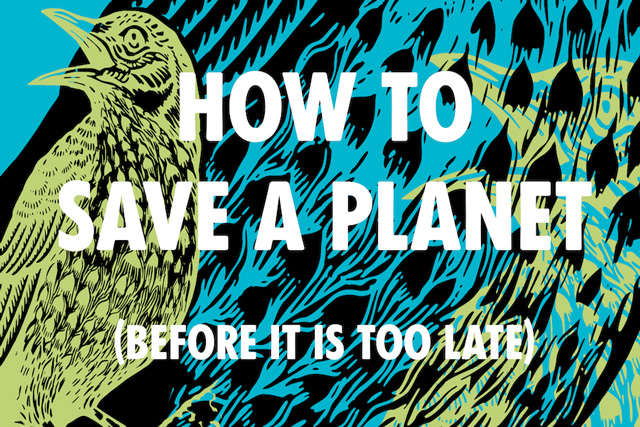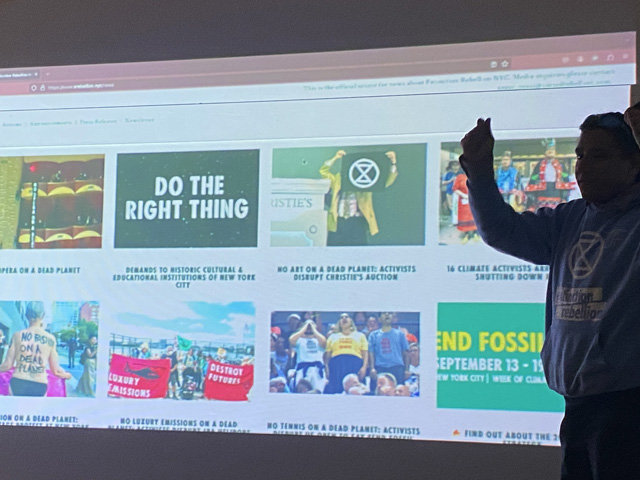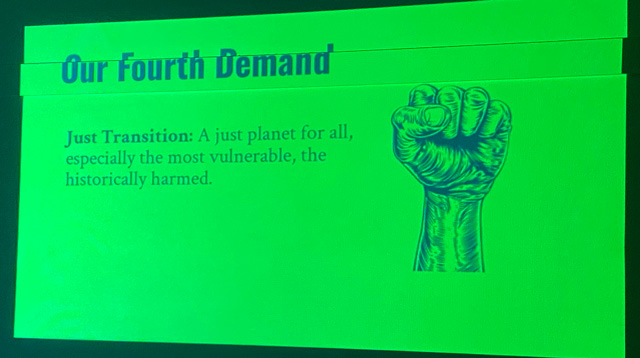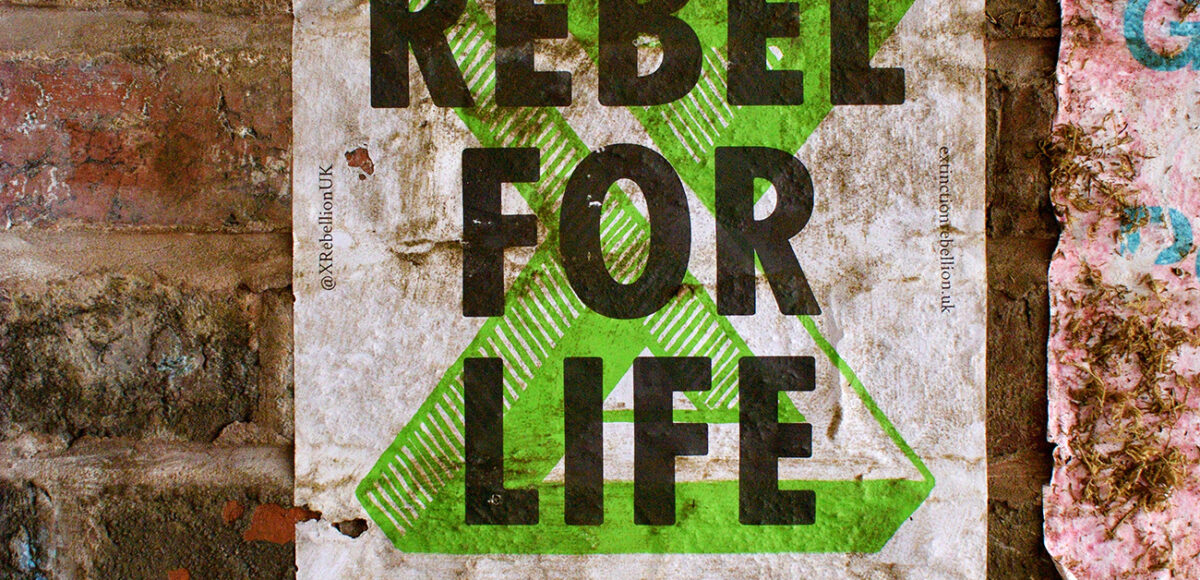By Aminata Gueye
Extinction Rebellion (XR) NYC has organized a plethora of events all meant to disrupt and bring attention to the use of fossil fuels which is greatly exacerbating the climate crisis. It says it has four demands to achieve its goals: “Tell the Truth, Act Now, Beyond Politics, and Just Transition.” Kyle Butler shared a presentation explaining these demands in a talk December 20. The demands revolve around government’s intervention in climate change issues, equity, equality, urgency and reparations, he said.

Extinction Rebellion advocates for governments to address the climate crisis transparently and to make drastic and immediate changes. The organization suggests governments use alternative ways to address issues politically like a citizens assembly and a transition to clean energy sources that don’t harm or exploit people. It facilitates climate and anti-racism related protests and demonstrations all over New York City.
Matthew Menzies, a member of XR Rebellion also spoke during the event, describing the successful demonstrations the organization has held. He also shed light on the difficulties of getting Gen Z involved in climate activism as that generation has pressing issues to face as members enter adulthood. “Their communication platforms are much faster and much more syncopated, particularly with algorithms,” said Menzies. “How often are you seeing a teenager reading a news article…Additionally, you know, it’s tough, there’s a lot of apathy around it, there’s a lot of resentment. Gen-zers essentially have been given the short end of the stick.”

Matthew Menzies speaking on the past demonstrations executed by XR Rebellion and his experience as an activist
Many older, middle class members in and outside the organization have been arrested for climate protests because, as Mr. Menzies suggests, they don’t have as much to lose. Furthermore, the companies that oversee the 401K plans and retirement funds have fossil fuel infrastructure. There is a growing movement called Third Act in which older individuals are choosing to divest their retirement funds away from such companies.
One highlight of its protests was during New York Fashion Week titled, “No Fashion on a Dead Planet.” Extinction Rebellion shared the detrimental effects of the fashion industry on the planet and how many turn a blind eye. In these series of protests are “No Art on a Dead Planet” in front of the Metropolitan Museum of Art and “No Christmas on a Dead Planet” which protests consumerism during the holiday season.
Textiles and clothing are prominent polluters, according to an article in the journal Frontiers in Environmental Science, “An overview of the contribution of the textiles sector to climate change.” The authors explain, “Its detrimental ecological footprint is caused by high energy, water and chemical use, the generation of textile waste and microfibre shedding into the environment during laundering (Niinimäki et al., 2020).” As a result of extended supply chains and production methods which require considerable energy, clothing and footwear produce 8–10% of global carbon emissions. This is more than aviation and shipping taken together. Dyeing and finishing cause up to 20% of industrial wastewater pollution.

Furthermore, presenters shared the importance of class and race as it pertains to who will face the worst consequences of climate change. Extinction Rebellion’s demand, Just Transition, focuses on this, explaining the way poor, black and brown people globally will deal with the consequences of climate change, much of it caused by rich nations in the West.
Romina Silva of the startup Foodware attended the meeting, sharing her company’s vision of collaborating with climate change activists to establish individual based actions to the crisis. Her company offers environmentally friendly options to reuse single use plastics.
Going forward, XR will host an “Embodied Antiracism Practice” event, a “Community Art Build” focused on creating with environmentalism in mind and hopes to restart its “Weekly Mindful Rebel Sits.”



